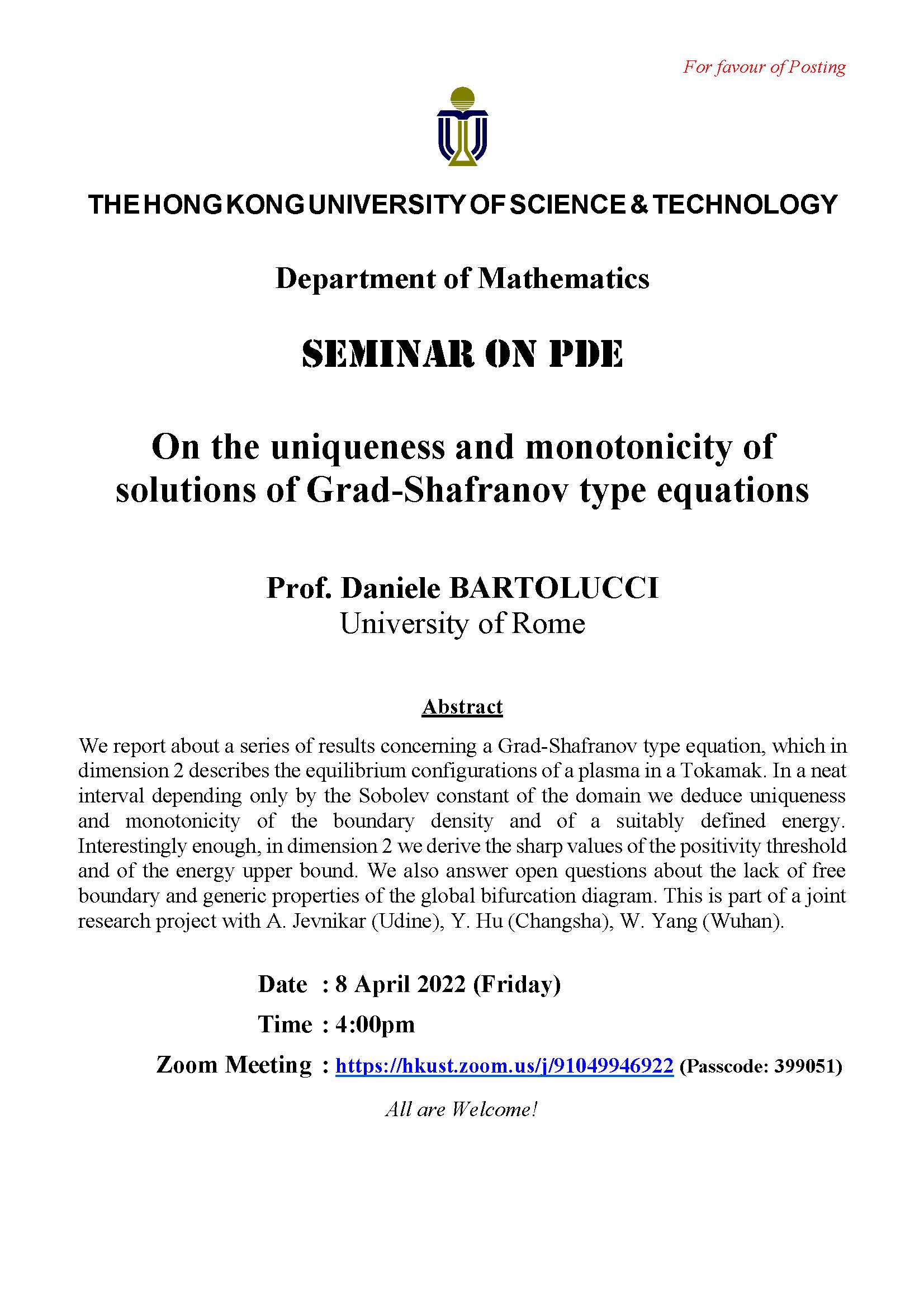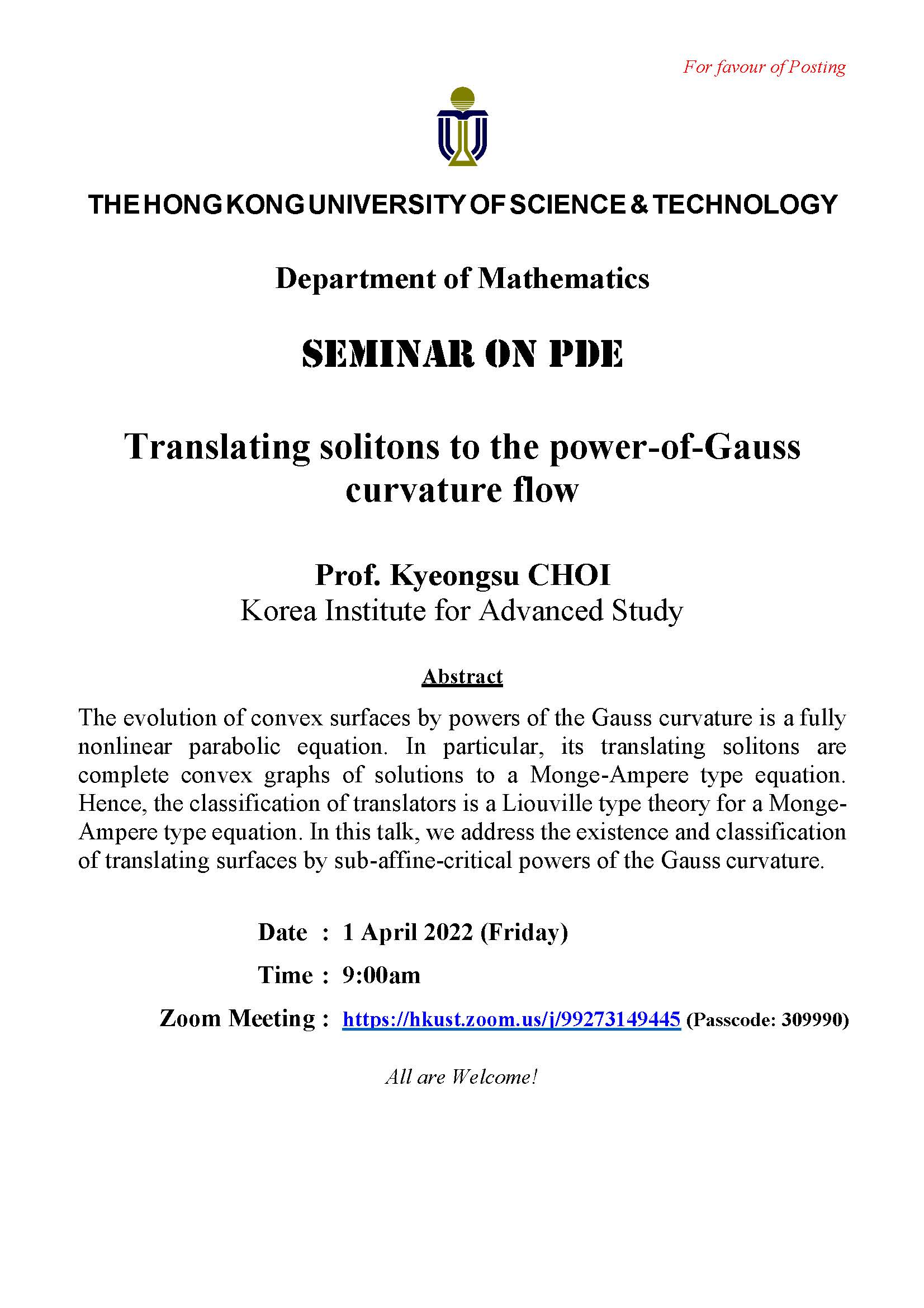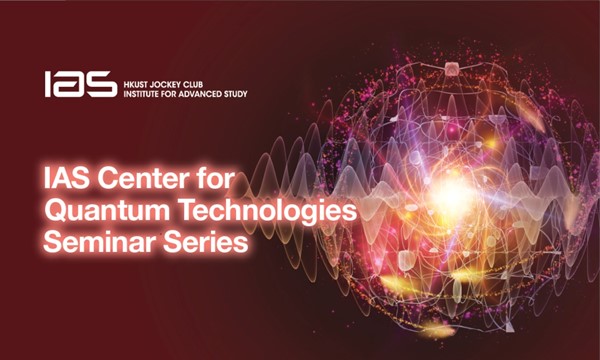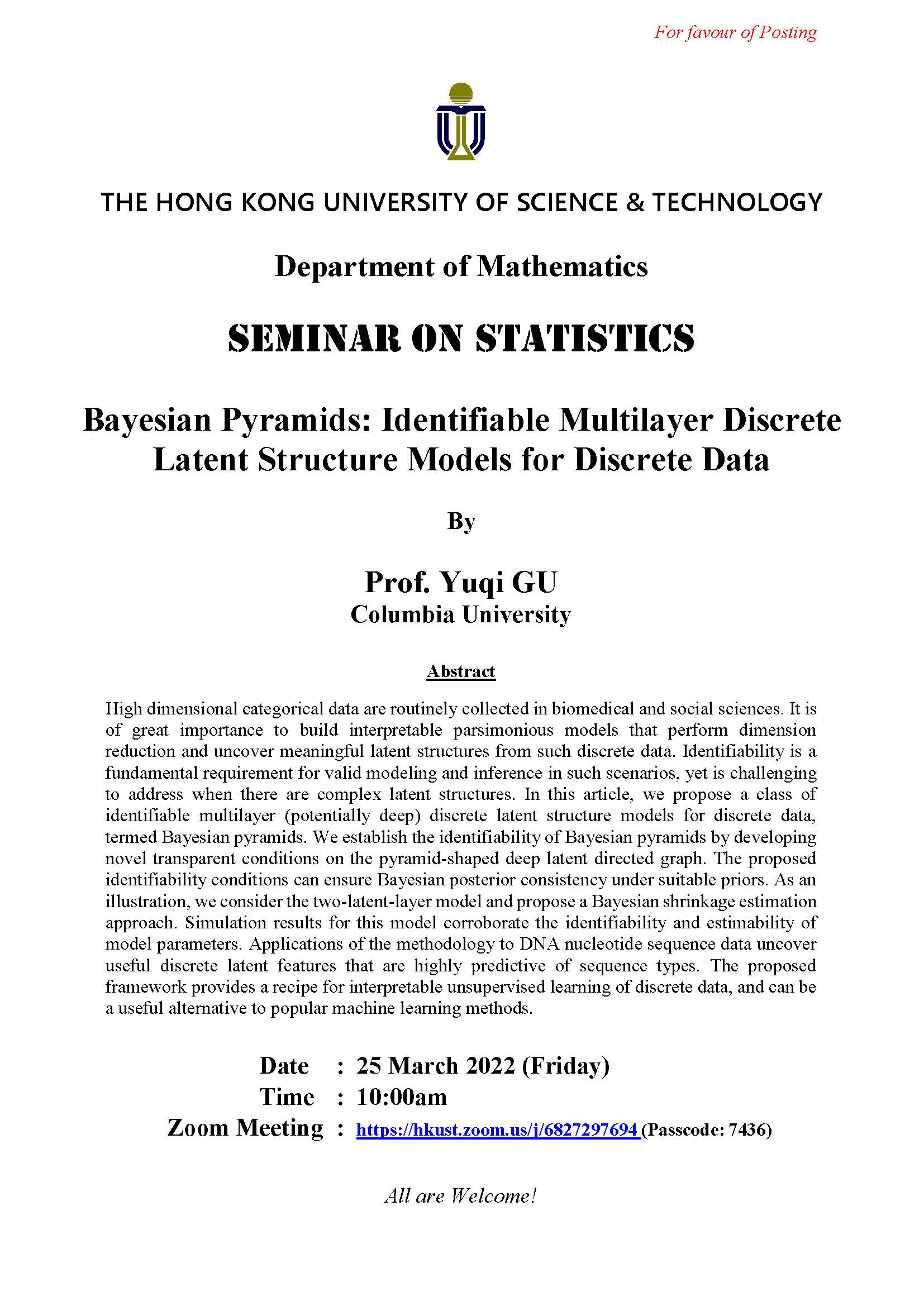
9 Apr 2022
Workshop
HKUST Online Science Laboratory Workshops
Enroll Now for HKUST Online Science Laboratory Workshops!
This early vacation will be a different one for you, despite no more outdoor activities and online classes, your learning will still continue!

8 Apr 2022
Seminar, Lecture, Talk
Department of Mathematics - Seminar on PDE - On the uniqueness and monotonicity of solutions of Grad-Shafranov type equations
We report about a series of results concerning a Grad-Shafranov type equation, which in dimension 2 describes the equilibrium configurations of a plasma in a Tokamak.

1 Apr 2022
Seminar, Lecture, Talk
Department of Mathematics - Seminar on PDE - Translating solitons to the power-of-Gauss curvature flow
The evolution of convex surfaces by powers of the Gauss curvature is a fully nonlinear parabolic equation. In particular, its translating solitons are complete convex graphs of solutions to a Monge-Ampere type equation.

1 Apr 2022
Seminar, Lecture, Talk
IAS Center for Quantum Technologies Seminar Series - A Journey of Quantum Physics Experiments with Atoms and Photons
For Attendees' Attention:
30 Mar 2022
Seminar, Lecture, Talk
Physics Department - Interfacial Dynamics between a Hydrogel and a Fluid: Modeling and Simulation
29 Mar 2022
Seminar, Lecture, Talk
Department of Chemistry - PhD Student Seminar - Applications of Machine Learning – The Advanced Prediction Methods of PM2.5 and Its Composition
Student: Miss Wing Sze CHOW
Department: Department of Chemistry, HKUST
Supervisor: Professor Jianzhen YU
25 Mar 2022
Seminar, Lecture, Talk
OCES Departmental Seminar: Future Response of the Southern Ocean to Climate Change
The Southern Ocean has undergone significant climate-related changes over recent decades, including westerly wind intensification, atmospheric warming and continental glacial melt.

25 Mar 2022
Seminar, Lecture, Talk
Department of Mathematics - Seminar on Statistics - Bayesian Pyramids: Identifiable Multilayer Discrete Latent Structure Models for Discrete Data
High dimensional categorical data are routinely collected in biomedical and social sciences. It is of great importance to build interpretable parsimonious models that perform dimension reduction and uncover meaningful latent structures from such discrete data.